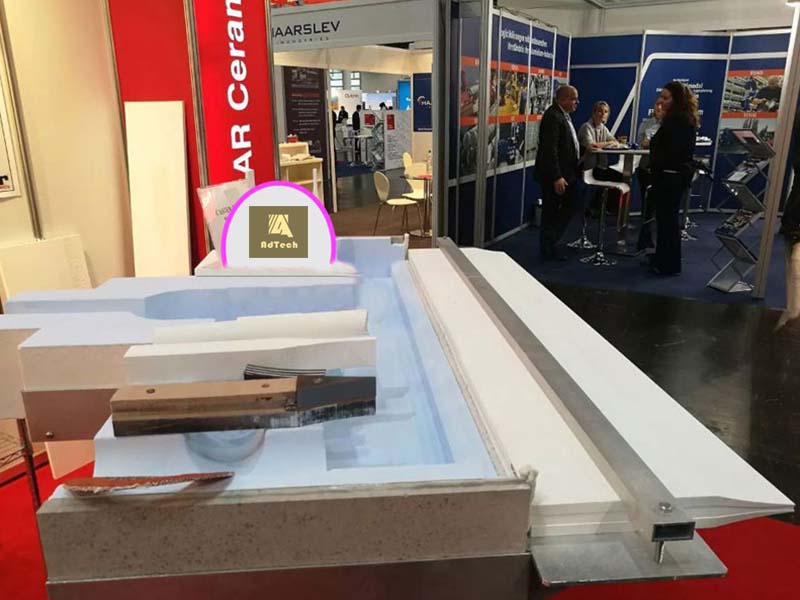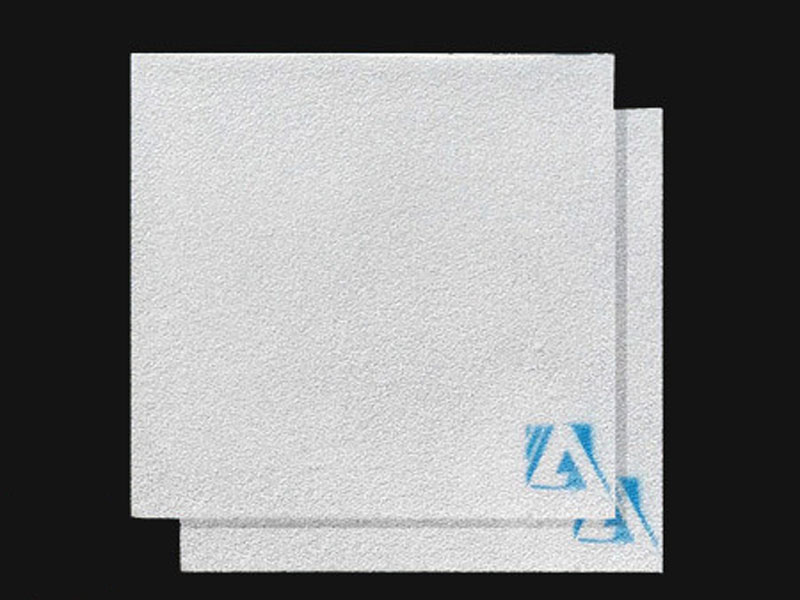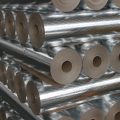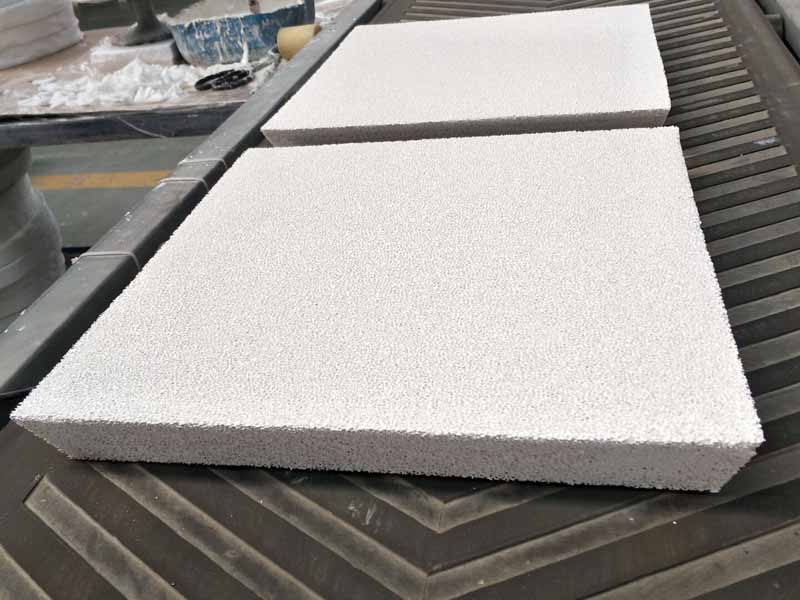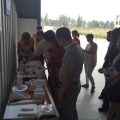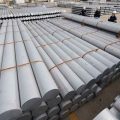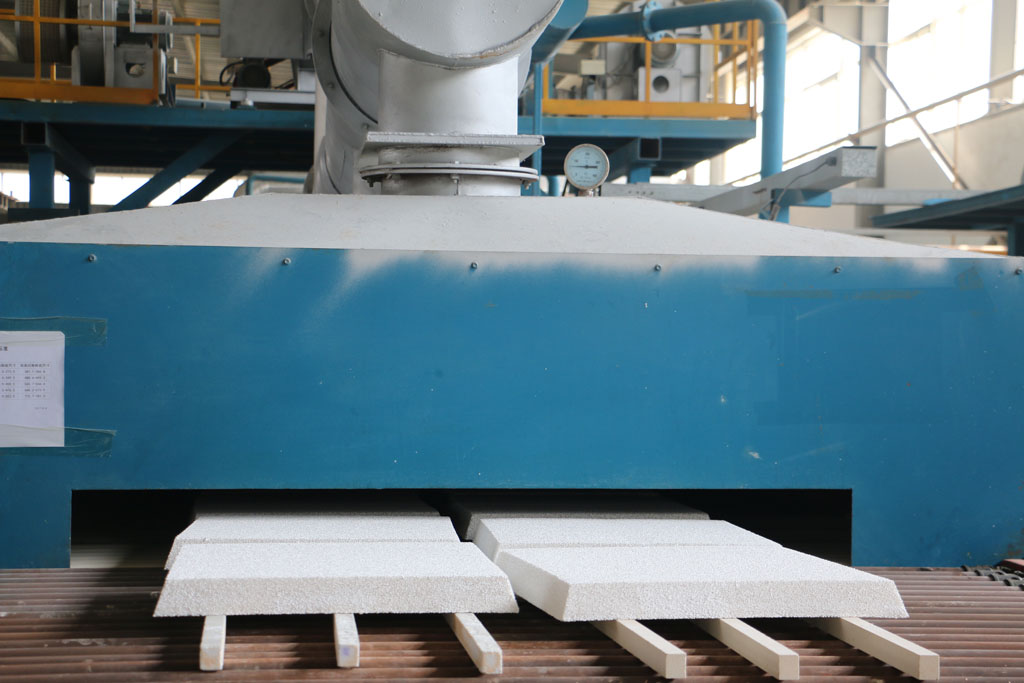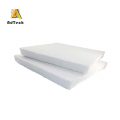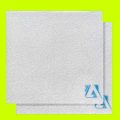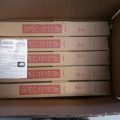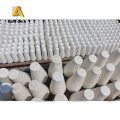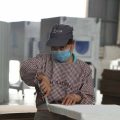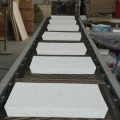Feeding Tip is a key component of Aluminum sheet Casting. Its quality directly affects the quality of the strip and the yield of production. The aluminum silicate casting nozzle material can be divided into various types according to the performance and needs of different casting machines. model.
The nozzle plate is made of ceramic fiber and a variety of other materials. It has the advantages of good elasticity, no deformation, and long use time. Its special process can effectively prevent the molten aluminum from eroding the nozzle and avoid carbonization.
The fracture structure is a fine and uniform layered fiber structure to prevent the existence of sheet-like flocculent structure; the working surface coating is uniform and smooth to prevent the occurrence of granular cracks and coating shedding, providing a guarantee for high-quality cast-rolled plates.
The wide range of uses of aluminum alloys has further improved the requirements for the quality of the foil, especially the surface quality.
This requires its aluminum alloy cast-rolled strip to improve its surface quality, so as to ensure the surface quality of the aluminum foil.
It is required to strictly control the process parameters of the cast-rolled strip during its production process, and also requires the casting and rolling equipment and components.
In particular, the structure of the Feeding Tip is reasonably designed and improved, so that the speed of the aluminum melt at the outlet tends to be uniform, and the temperature tends to be consistent, which improves the quality of cast-rolled slabs and reduces the surface of aluminum foil production in the later stage. The defects have important production value.
In the actual production process, the aluminum liquid flows through the Castertip, and then reaches the casting-rolling zone, and the process of completing the casting-rolling through the rolls. In the actual simulation process, the flow zone is selected as between the casting-rolling zone and the casting nozzle. Observe in this range. The distribution law of the temperature and flow field of molten aluminum.
